(MENAFN- Asia Times) When dockworkers at the Port of Algiers discovered two dead pigs in a shipment of milling wheat from France on June 17, there was outrage amongst Muslim Algerians.
With the pig an unclean animal in Islam, Agriculture Minister Al-Hamid Hamidani promptly blacklisted the French supplier and sent the 27,000-ton cargo back, demanding compensation.
The bakers of Algiers were not left without wheat to make bread for long, though.
Only five days later, 28,000 tons of milling wheat was reportedly on its way to Algiers – the first such cargo in four years from a country far further afield than France: Russia.
Indeed, nowadays across the Maghreb – the northwest African countries from Libya to Mauritania – traditional European powers are being challenged by states that have either long been absent from the region, or which are entirely new to it.
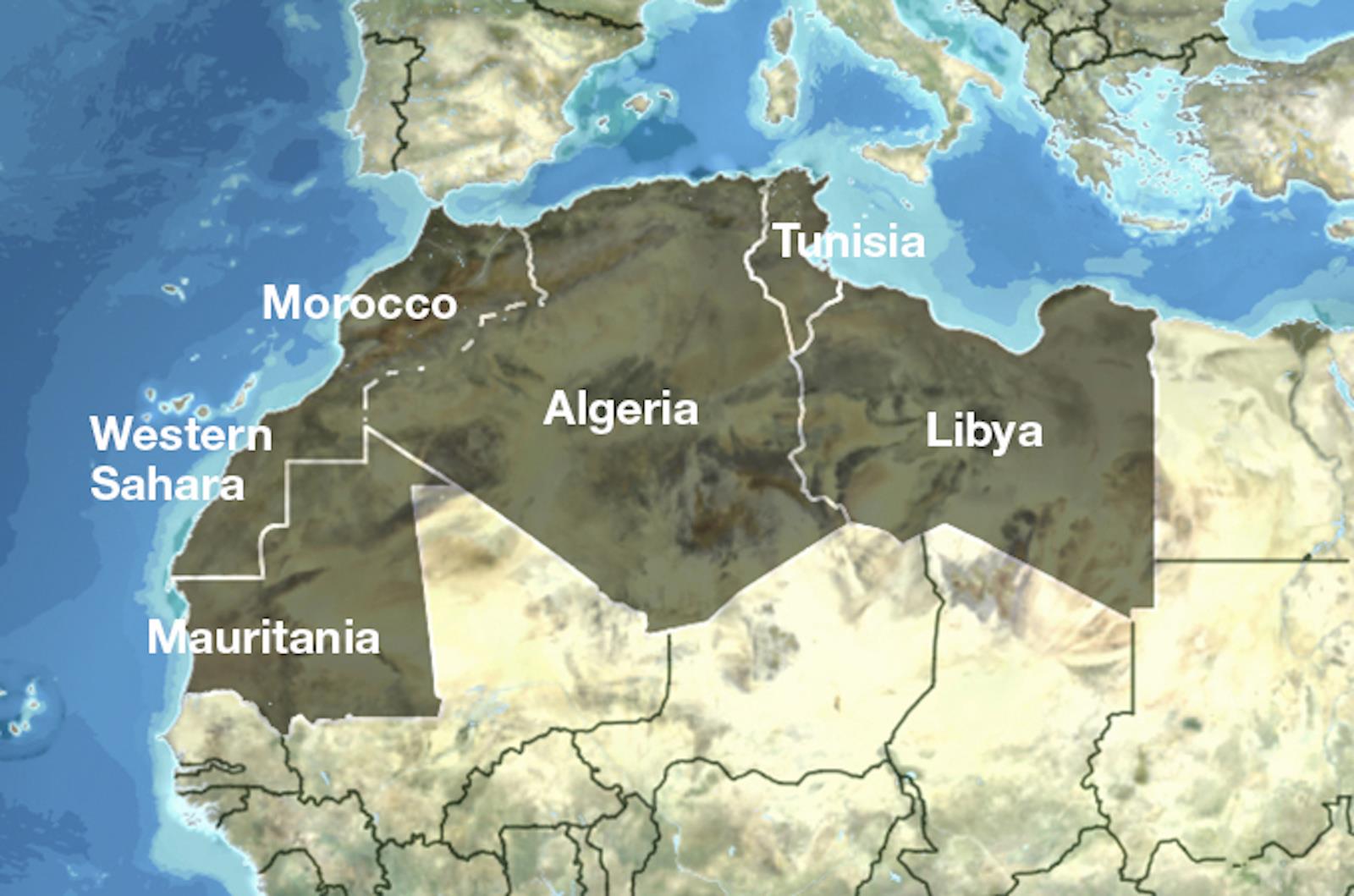
The rising influence of Turkey, Russia and even China has diminished the involvement of the traditional players, especially France.
“In recent years, the Maghreb has become an increasingly crowded field,” Intissar Fakir, head of the North Africa Program at the Middle East Institute, told Asia Times.
This competition does not stop at grain, either, but includes weapons, soldiers – and political influence.
It is a competition that also impacts a much wider geography.
“When you talk about the Maghreb, you also have to talk about the Sahel region, too,” Arezki Daoud, principle analyst at MEA Risk and editor of the North Africa Journal, told Asia Times. “And that region is now potentially at an inflection point.”
Indeed, south of Morocco, Algeria and Libya lie a belt of countries – Mali, Niger and Chad – where conflict now threatens to overturn the whole balance of power in North Africa.
Colonial, post-colonial, neo-colonial
From the 19th century onwards, the Maghreb –“the West” in Arabic – was dominated by European colonial powers.
France ruled in Tunisia and Algeria and shared control of Morocco with Spain. At the start of the 20th century, Italy also invaded and occupied Libya, ejecting the Ottoman Empire – to whom most North African states had at one time or another held allegiance.
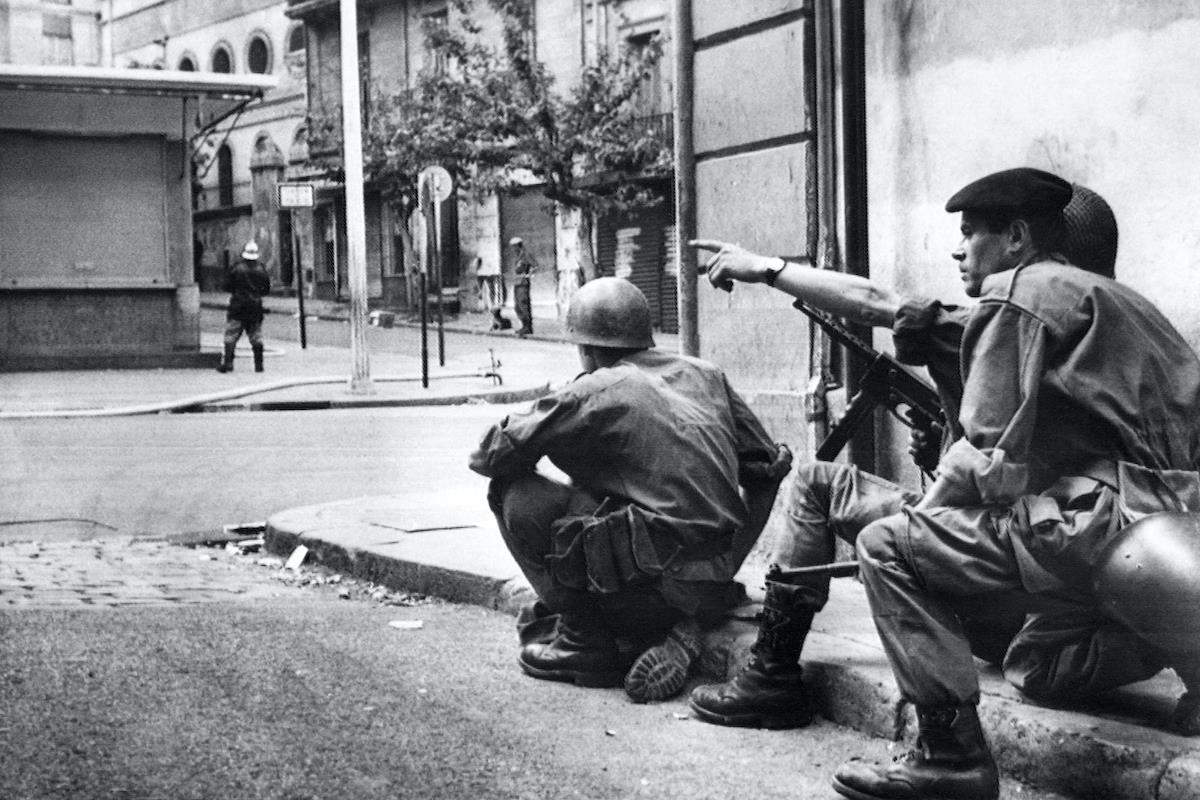
French soldiers on the streets of the Belcourt district in Algiers during a shootout on May 14, 1962, in Algiers. Photo: AFP
A series of wars of independence, however, saw all these states break free in the 1950s and 1960s.
Yet, post-independence, the bonds with former colonial powers continued – economically, and culturally.
In 2019, France, Italy and Spain were by far the top three trading partners for Algeria, Tunisia and Morocco, while the European Union regularly accounted for more than half of all trade in the Maghreb.
The region's people are also often linked to Europe.
In France today, for example, estimates of the number of citizens of Maghrebi descent range from five to eight million. French also remains a major language in Algeria, Tunisia, Mauritania and Morocco.
In recent times, however, other influences have started to strengthen.
“There has been a long-term de-coupling between North Africa and the West,” Riccardo Fabiani, the International Crisis Group's North Africa project director, told Asia Times.
Two major factors have been behind this – economic and geo-strategic.
On the economic front, the eurozone crisis – a multi-year affair starting back in 2009 –knocked Europe back as a major source of finance and investment.
“There was a sense of Europe retreating after that,” says Fakir,“of not paying as close attention as before to its North African allies.”
On the geostrategic level,“the US has been playing a lot more distant role in North Africa,” says Fabiani,“first under Trump, but it seems Biden is continuing on the same path. The US doesn't seem particularly concerned with Western Sahara, Tunisia, even Libya, while Europe is just unable to fill that gap.”
This has created a space for non-traditional actors to enter more fully.
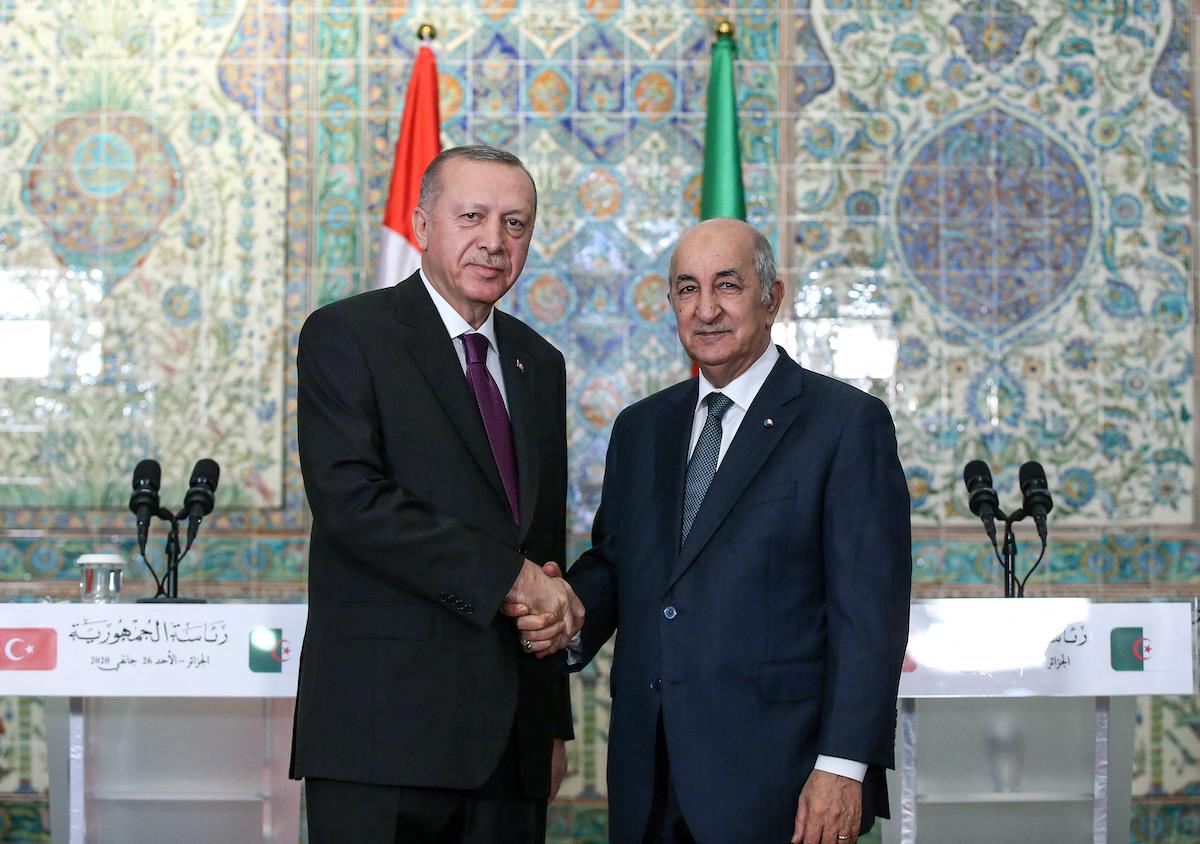
Turkish President Recep Tayyip Erdogan, left and Algerian President Abdelmadjid Tebboune in January 2020. Photo: AFP / Murat Kula
In Libya, Turkey is now a major power, with troops on the ground in Tripoli, while Turkish businesses and products are major players in Algeria, Tunisia and Morocco.
In Tunisia, the Ennahda Party is one of the largest, and is connected to the Muslim Brotherhood (MB), the pan-Arab Islamist movement widely supported by Ankara.
This connection has also brought the Maghreb into the post-Arab Spring competition between supporters of groups tied to the MB – Turkey and Qatar – and their opponents – Egypt, the UAE and Saudi Arabia.
This entanglement is most evident in Libya, where the UAE has sent money and military resources to oppose the Turkey-backed government in Tripoli.
At the same time, Turkish 'soft power' is also evident across the Maghreb, in popular TV series, educational exchanges – and Turkish President Recep Tayyip Erdogan's leadership style.
“Independent, unyielding and with a tough skin, he is building the posture of a regional leader – which appeals to many here,” says Fakir.
Russia is also a major military player in Libya – avoiding any direct presence by working through the mercenary Wagner Group – while it is also a big arms supplier across the region.
“Algeria is the biggest buyer of Russian arms in Africa,” says Fakir,“while Russia is also heavily invested in Algeria's energy sector, through Gazprom and Lukoil.”
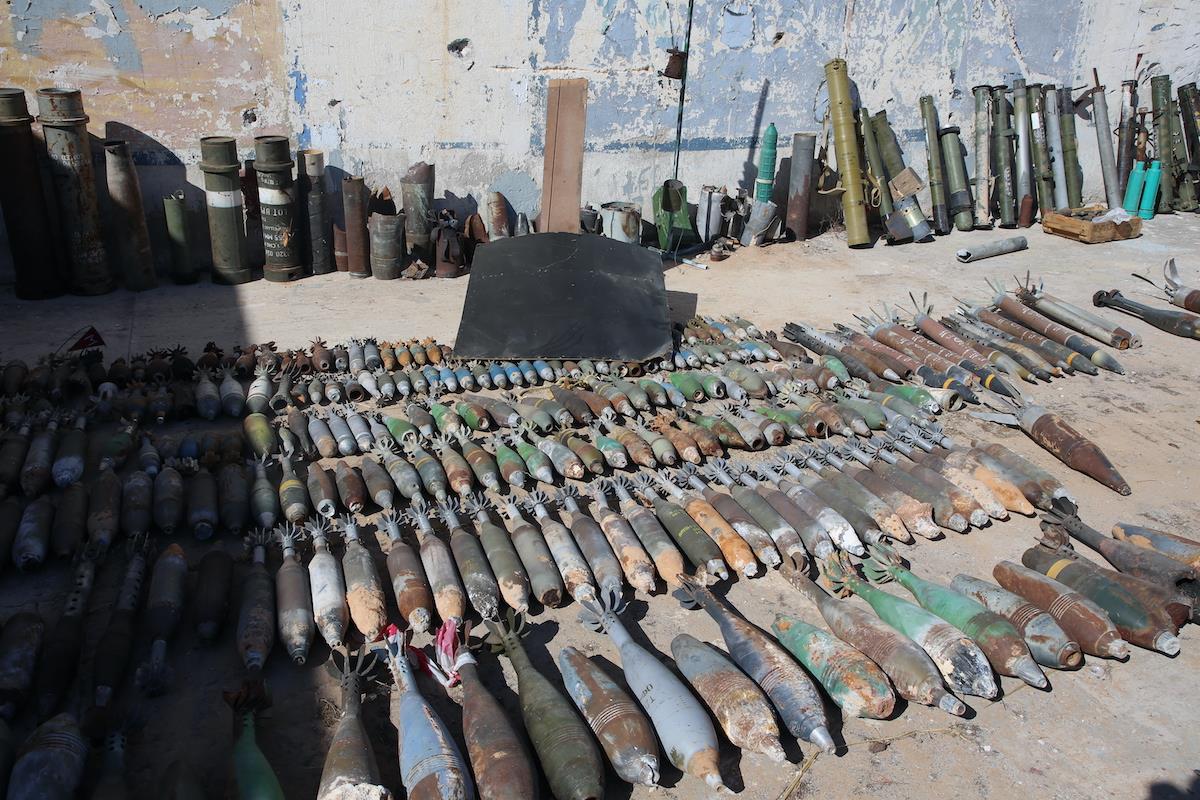
Munitions from militia affiliated with warlord Khalifa Haftar's forces and mercenaries from the Russian security company Wagner Group found in civilian settlement areas in the south of the Libyan capital Tripoli. Photo: AFP / Hazem Turkia / Anadolu Agency
Algeria has extensive gas and oil reserves, mostly run by state-owned Sonatrach, the largest company on the continent.
Russia has also had some success with“vaccine diplomacy.”
“Algeria and Tunisia have authorized the Sputnik vaccine and are hoping to manufacture it locally,” adds Fakir.
East-West corridors
Another country engaging in vaccine diplomacy these days is China, which has sent Sinopharm shots to the Maghreb, as its influence also grows.
“Beijing doesn't speak out about human rights, or against authoritarianism, or criticize a country's behavior, which states here do have to worry about when it comes to Europe,” adds Fakir.
Indeed, on June 21, Germany announced it was suspending its US$1 billion aid program to Morocco, due to a dispute over Morocco's occupation of Western Sahara, the former Spanish colony taken over by Rabat back in 1979.
In contrast, China makes no comment on the Western Sahara and has instead been increasing its investment footprint around the Maghreb, largely through construction.
This has included prestige projects such as the $1 billion Great Mosque of Algiers – the largest in Africa – and the $32.5 million Rabat-Sale bridge in Morocco – the longest on the continent.
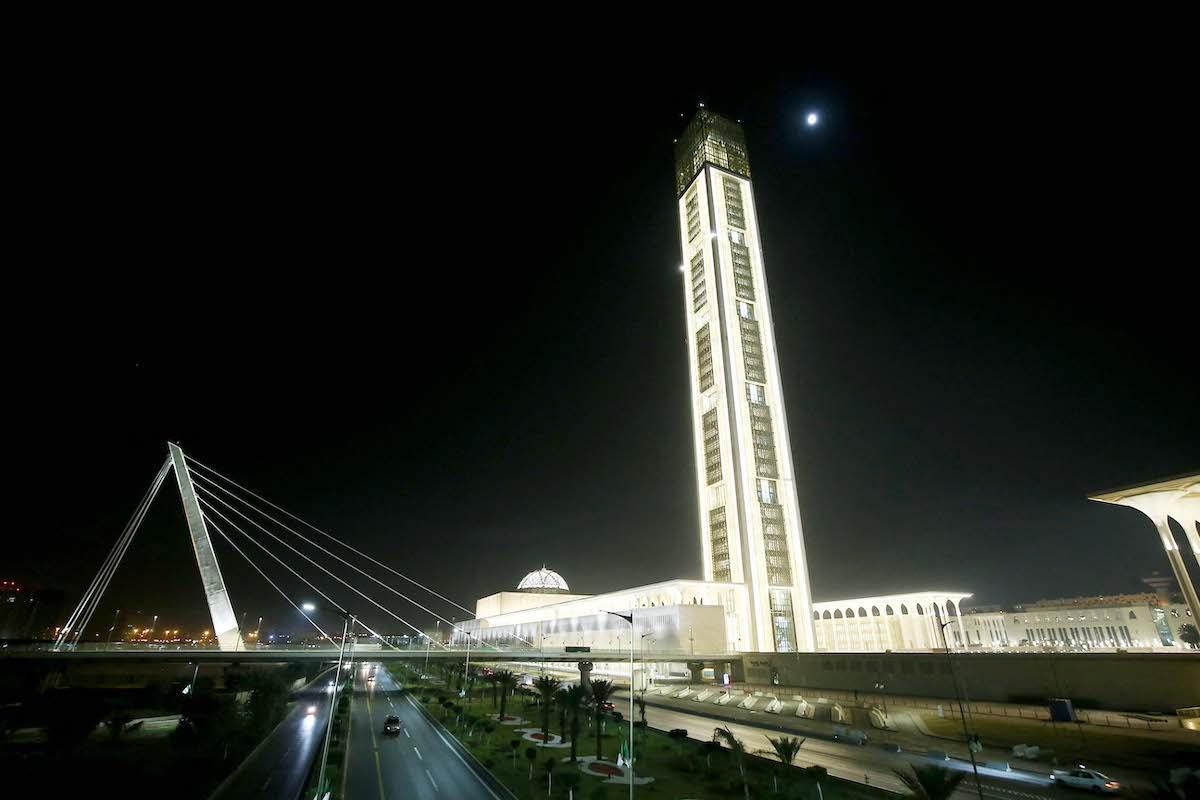
An exterior view of the Great Mosque of Algiers, also known as Djamaa el Djazair. It was designed by a German architectural firm and built by the China State Construction Engineering Corporation. Photo: AFP / Billal Bensalem / NurPhoto
China has also reportedly assisted Algeria in installing Huawei surveillance equipment to monitor oppositionists.
Yet,“China hasn't been as successful in North Africa as it has been in Sub-Saharan Africa,” says Daoud.
The North African countries remain wary of Chinese“debt diplomacy,” while there have also recently been a number of problems with projects – such as Morocco's Rabat-Sale airport and Tangier Tech City.
The Maghreb also remains some way off the main focus of China's Belt and Road Initiative (BRI).
“The BRI is about connecting China to Europe, says Fabiani,“and the Mediterranean is a part of this – but the eastern part, not the western.”
Rising and falling
Meanwhile, the other side of the coin to the growing presence of non-traditional actors is the fading of traditional influencers.
“You have to ask, what happened to the Europeans?” says Daoud,“and in North Africa and the Sahel, that really means, what happened to the French? They've simply been unable to update and upgrade their Africa policy as times have changed.”
This troubled role was further highlighted on June 10, when French President Emanuel Macron announced he was ending French military operations in the Sahel against jihadist fighters.
France could not maintain a“constant” presence there any longer, he said.
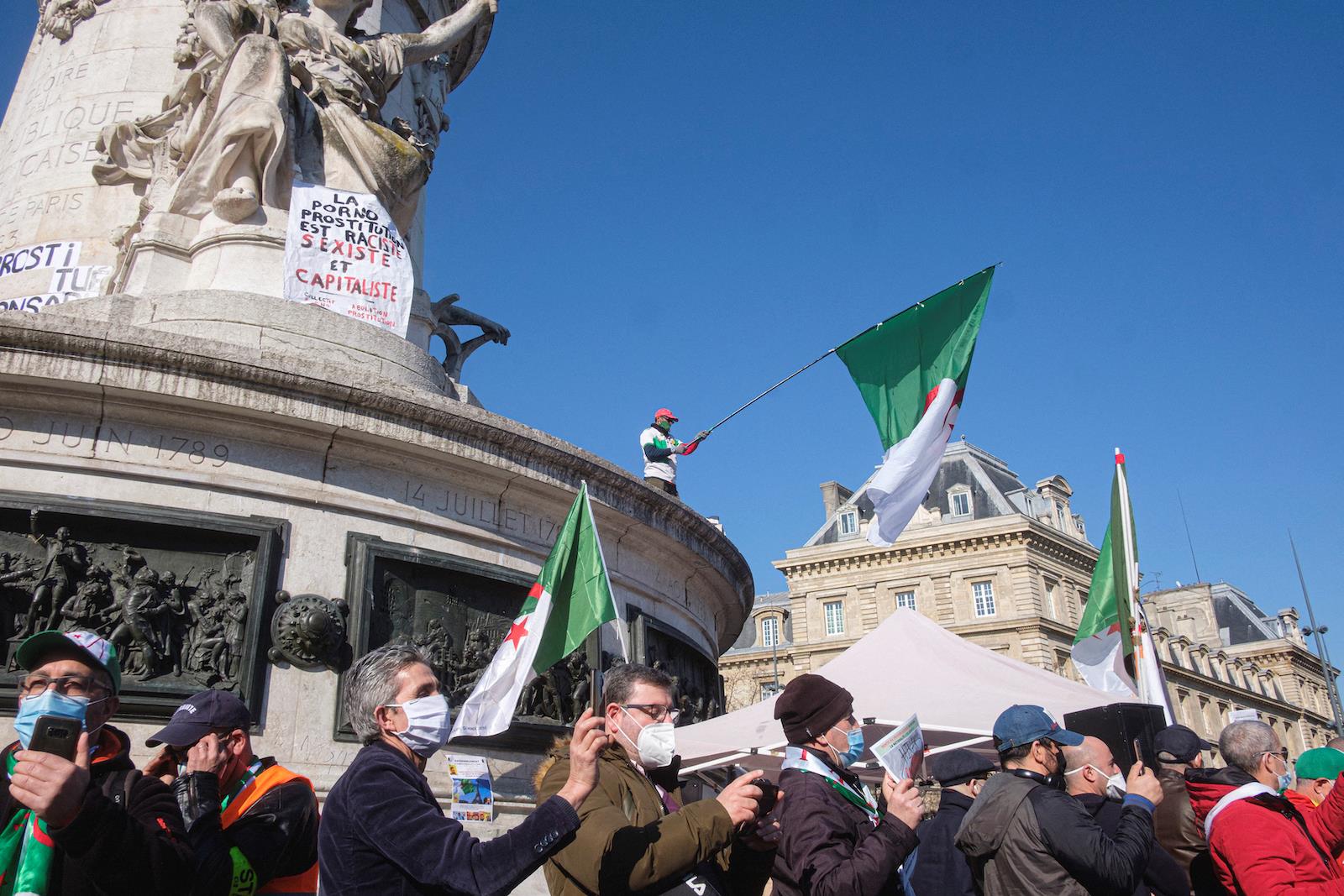
French-Algerian protesters fly the flag and gather in Paris. Photo: AFP / Hans Lucas / Nicolas Portnoi
In the Maghreb, too,“the Europeans already don't think of themselves as having 'leverage' over what happens there,” says Fakir.
That may change, as European states begin to take the rising presence of Turkey, Russia and even China into account, however.
“The Europeans are now making clear that they see China as a threat,” says Fabiani,“so there could be an increase in competition over infrastructure that might boost the Maghreb's importance to both, going forward.”
For now though, while“Europe and North Africa can't really do without each other,” says Fakir,“The relationship will continue to erode – and to grow a lot more complicated.”
MENAFN30062021000159011032ID1102367805